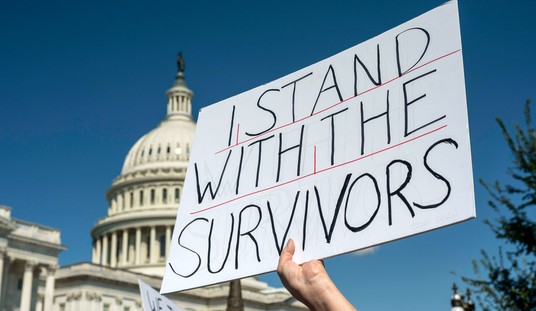When first we lay eyes on the evil Xerxes, in the visual revolution known as 300, he is riding a monstrous platform carried by a throng of people whom (we presume) are slaves. It’s a floating throne and court all in one, massive and imposing. He wants to get down, so he begins walking down the steps from his throne, to the platform. He keeps walking off of the platform, without breaking stride. The slaves jump to, creating a set of steps with their backs as he pads his way down.
It is an illuminating moment as we meet the Bad Guy: he thinks so highly of his own comfort, and so little of his people, that he expects they will literally place their bodies at his disposal for so trivial a purpose. It’s a great way of establishing the depths of his self-absorption and decadence. We get it. This guy’s a creep.
In daily life, though, many live like Xerxes without batting an eye, floating through the day on a cloud of comforts they don’t even see. Some feel guilty about this.
It is in vogue, of late, for people to extend this notion into the environmental arena. One of the byproducts of the last several decades’ worth of focus on ecology is the abiding notion that having any impact whatsoever on the world around us is a bad thing, to be shunned and avoided – and, whenever possible, atoned for. There appears at times to be a crushing guilt coursing through the land, that we’re doing something wrong and we’d better stop it.
In response, some people try hard to live in simple fashion, consuming little and leaving as little trace as possible. This approach is not limited to one side of the aisle or another. I admire these people, for they appear to be living their ideals.
Other people feel it’s enough for them to be aware of their shortcomings, They can congratulate themselves that they really see the impact of their well-progressed lifestyle on the environment. They don’t go much further.
But they still have that guilt, perhaps even more intensely for all their “awareness.” So, they try to make up for it.
This has reached its most ridiculous level when it comes to something called the “carbon footprint” and purchasing “offsets.” The notion is that every person engages in activities that are to blame for some portion of global warming, and that this is a bad thing. It rings true to many because it taps into the endemic environmental guilt so many already feel.
Some, notably wealthy and famous people who wish to continue using private jets and maintain luxurious homes, purchase “offsets” that represent mitigation for their carbon footprint. The offset supports some organization that, in turn, supports carbon-reducing (or, at least, non-carbon-emitting) enterprises.
Climate Care, one of the outfits that takes wealthy folks’ money, puts it this way: “Offsetting means paying someone to reduce CO2 in the atmosphere on your behalf.”
Win-win. The wealthy person gets salve for the conscience, and money changes hands. Sweet.
There are at least two, related, problems with this.
First, the notion of paying someone else to do what you yourself are not willing to do seems to undercut the whole point. Purchasing offsets seems a lot like the old practice of buying indulgences so the wealthy could continue on with their sinning, only remaining able to sleep at night secure in the knowledge that the Pope said they would not be going to Hell.
Second, few look too closely at the offsets and what they support. According to The Times of London, one of Climate Care’s projects involves using human labor in the developing world to pump water for irrigation, using “treadle pumps” that look not unlike Stairmasters. People step for hours on these things, pumping merrily along. Climate Care puts it this way: “One person – man, woman or even child – can operate the pump by manipulating his/her body weight on two treadles and by holding a bamboo or wooden frame for support.”
Treadle pumps used to be in vogue in British prisons – and were finally outlawed, according to Spiked Magazine, having been deemed too cruel a punishment. Here, they are being touted as suitable labor for a third-world child. All, ironically, so that guilty consciences can be set at ease.
Private industry, the pursuit of wealth, and the competition this engenders is at the root of much of what makes us a great nation. The flipside of this industry, which is privilege, entitlement, and lassitude, are just as strongly at the root of what holds us back.
Like Xerxes, many are addicted to comfort. We want our lifestyles to remain intact, so we hire others to do the heavy lifting. While they may well be grateful for the jobs, are we to believe we have improved our own moral standing in any real way? Or are we more like Xerxes, happy that others are there to lift us along on our platforms?
Brad Rourke writes a column on public life called Public Comments, produces a videolog called Taxonomies, is a founder of the Maryland neighborhood blog, Rockville Central, and is in a band called The West End.









Join the conversation as a VIP Member